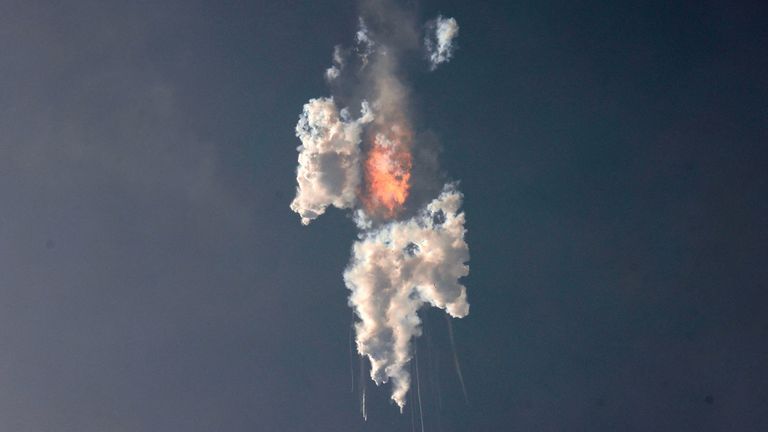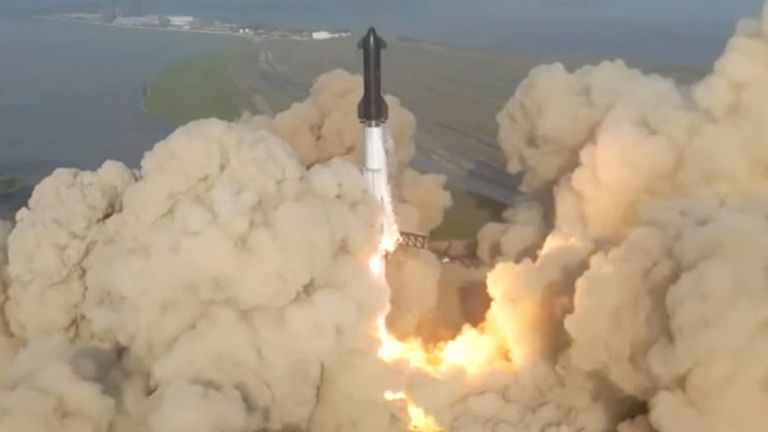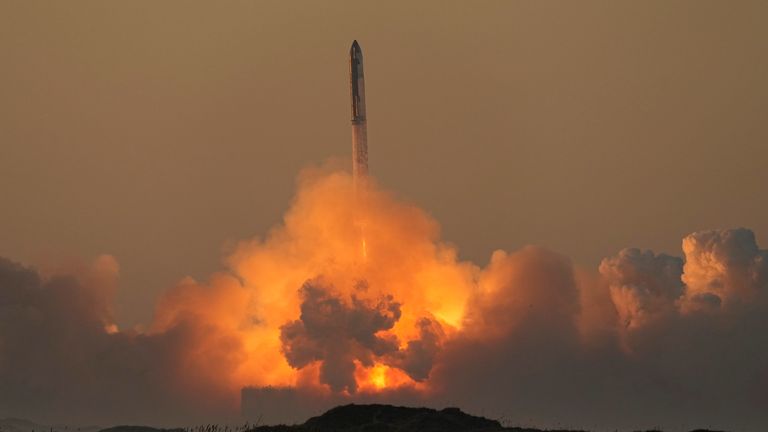SpaceX’s Starship successfully entered its “coasting” phase during its third test launch.
The rocket cleared its launch pad in Texas, separated from its “Super Heavy Booster” and began coasting at an altitude of 145 miles.
It’s the most successful test flight of the spacecraft yet.
Starship is the world’s biggest and most powerful rocket, at nearly 120 metres tall, and is intended to carry astronauts to the moon this decade.
It’s big enough that SpaceX says it “will be able to carry up to 100 people on long-duration, interplanetary flights”.
Ultimately, Elon Musk, SpaceX’s billionaire founder and CEO, wants Starship to fly to Mars.
Every test flight SpaceX conducts gets them closer.
This is Starship’s third test.
The first time the giant rocket was launched in April 2023, it exploded less than four minutes into a planned 90-minute flight.
The next launch in November lasted around eight minutes before exploding.
Musk said the rocket should fly hundreds of uncrewed missions before carrying its first humans.
Last year’s test flights were designed to show the spacecraft’s two stages could separate after launch.
Today’s flight was to attempt to open the payload door and reignite an engine in space.
Before lift-off, SpaceX commentator Kate Tice reminded viewers: “Today is still just a test. Any data received will help us improve.”
“That’s the goal of flight tests,” added Siva Bharadvaj. “They teach us about the limits of our design and improve our understanding of the vehicle.”
Read more from Sky News:
Giant 280 mile volcano found on Mars
Brightest and most violent object in universe discovered
GCHQ releases puzzle – are you smart enough to solve it?
Instead of being disappointed, like onlookers at a Japanese launch on Wednesday, NASA administrator Bill Nelson congratulated SpaceX when Starship exploded on its first launch last April.
He tweeted: “Every great achievement throughout history has demanded some level of calculated risk, because with great risk comes great reward.
“Looking forward to all that SpaceX learns, to the next flight test and beyond.”
SpaceX says Starship will eventually carry cargo to Mars in order to “build cities” on the planet and NASA is giving it a central role in its Artemis programme, which aims to land astronauts on the moon for the first time in more than 50 years.



